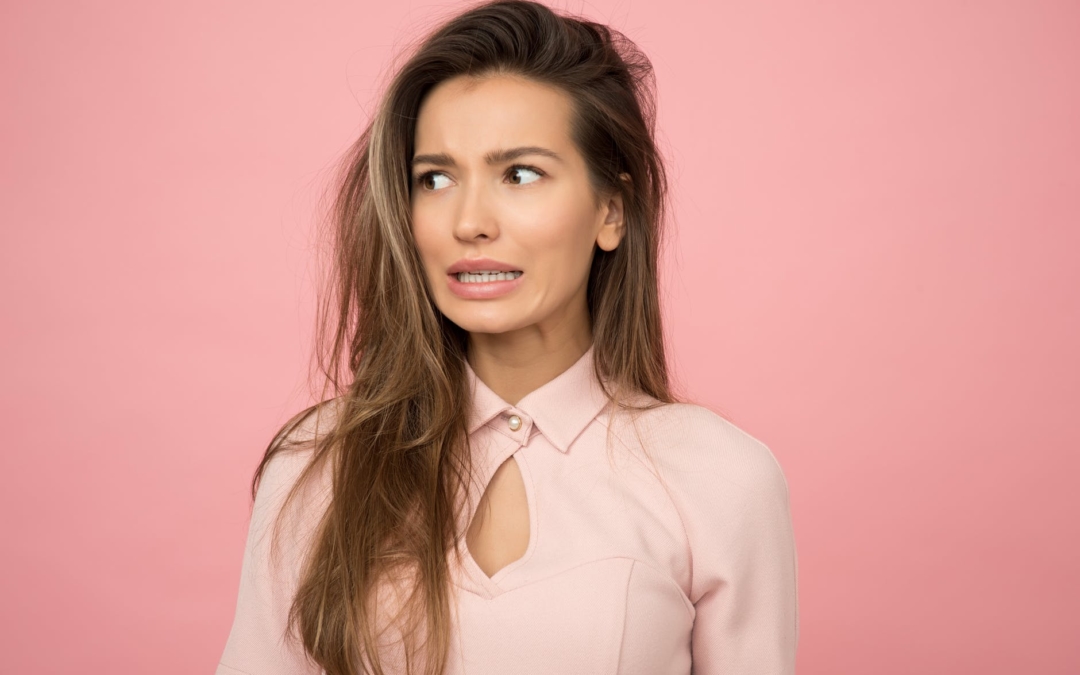I’ve struggled with miserable periods for nearly two decades.
From migraines and back pain to mood swings and excruciating cramps, my monthly curse has always been a nightmare.
Can you relate?
Many women suffer in silence due to embarrassment or a fear of not being taken seriously, but difficult periods affect millions of women.
In fact:
- 88% of women have experienced period pain at some point in their lives.
- Almost 40% of women say period pain has affected their ability to work or complete daily activities.
- 30% of women have called in sick due to period pain.
- 1 out of 5 women struggle with menorrhagia, the clinical term for heavy menstrual bleeding that lasts more than seven days.
Here are five smart tips for tackling heavy periods!
*Disclosure: This is a partnered post and this post contains affiliate links. Read our full disclosure policy here.
Healthy Habits
Certain habits, like eating a healthy diet and exercising regularly, can improve menstrual cramps over time. A low-fat diet with plenty of veggies is your best bet.
Regular exercise can also help to alleviate cramps. Exercising might be the last thing you want to do when you’re in pain, but even low intensity exercise can help.
Try walking or gentle yoga if you don’t have the energy to do anything more intense.
Another non-medicinal way to treat cramps is with a heating pad. The heat can have a soothing effect on tight muscles and can reduce the severity of cramps.
Avoiding Triggers
When you have your period, you might want to curl up in a ball in bed and watch Gilmore Girls reruns while devouring a tub of chocolate ice cream.
As tempting as this sounds, it’s probably not the best thing for you.
Certain bad habits, such as remaining sedentary or eating junk food, can actually make period cramps worse.
Try to avoid:
- Junk food (foods that are high in sodium, sugar, or fat)
- Coffee
- Sitting or laying down for long periods of time (try to get a little exercise instead)
- Painkillers that contain aspirin, which is a blood thinner
Period-Proof Underwear
In addition to being painful, heavy periods can be downright embarrassing. No one wants to deal with a period leak on their pants while they’re at school or work. Ugh!
Not only is it awkward, but leaks can also be a lot of work. Cleaning clothes and bed sheets every time you get your period is a major hassle.
The solution? Period-proof underwear!
Knix’s comfy period-proof underwear is both affordable and effective. A typical pair of these undies costs just $22-$24, and they provide worry-free protection.
How does it work? An extra absorbent pad with leak resistant backing is built into the underwear, and the pad is so thin, you won’t even notice it!
Medication
If exercising and eating a healthy diet doesn’t cut it, try over the counter medications. Just make sure to avoid anything that contains aspirin.
Aspirin is a blood thinner and it can make heavy periods worse. If you’re still in a lot of pain and nothing seems to do the trick, it might be a good idea to visit your doctor.
Visit the Doc
Your doctor may suggest a prescription medication or birth control pills to help manage your heavy flow and painful cramps.
Birth control reduces certain hormones which can reduce the severity of cramps in many women.
In many cases, heavy periods are not a cause for concern. However, menorrhagia can be a symptom of a health problem, such as:
- Hormonal imbalance
- Fibroids or polyps
- A bleeding disorder, such as Von Willebrand’s
Make sure to talk to your doctor if you’re concerned about your heavy periods. Many women don’t because they’re embarrassed or no one takes them seriously.
Doctors were always dismissive about my menorrhagia and other bleeding symptoms. I struggled with awful periods for nearly 20 years before I was finally diagnosed with a rare bleeding disorder called Factor V deficiency.
If you feel like your doctor isn’t listening to you, be persistent or see another doctor. You know your body better than anyone else does!
Tackling Heavy Periods
Heavy periods can be embarrassing and uncomfortable to talk about, but it’s time that we discussed this issue openly.
Millions of women struggle with difficult periods and many of them suffer in silence. Try the tips above to help manage your periods and make sure to see a doctor if needed.
***Disclaimer: I am not a medical professional. The tips in this article are not meant to replace the advice of a trained physician. Always consult your doctor for medical advice.




Recent Comments